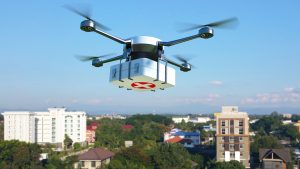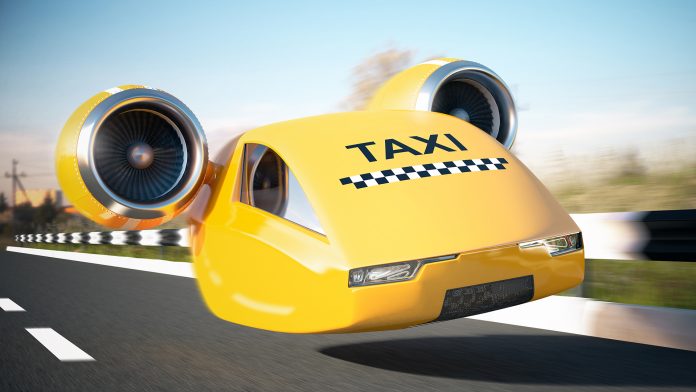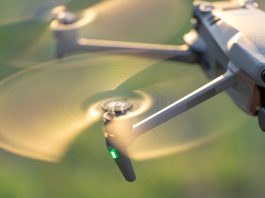Flying taxis, crime-fighting drones and critical 999 care deliveries could all be a reality by 2030 thanks to the government and industry’s joint Future of Flight action plan, announced by the Department for Transport (DfT) today.
The Future of Flight plan sets out a roadmap for flying taxis and novel electric aircraft in the UK and details how technology, once confined to sci-fi, could transform our skies.
Studies estimate drone technology could boost the UK economy by £45bn by the end of the decade.
It details plans for the first piloted flying taxi flight by 2026, regular services by 2028, regular drone deliveries across our skies by 2027, and demos of autonomous flying taxis without pilots on board by 2030 – transforming how people and goods are transported.
Rapid advances in battery technology making flying taxis a reality
The Future of Flight plan was unveiled on the same day the Minister is due to visit Vertical Aerospace in Bristol – one of the UK companies making flying taxis and at the cutting edge of innovation in aviation.
These greener, quieter flying drones are already undergoing the Civil Aviation Authority (CAA) authorisation process and have been made possible thanks to rapid advances in battery technology, meaning they are light enough to stay in the air and powerful enough to cover the distances needed.
Aviation and Technology Minister Anthony Browne said: “Cutting-edge battery technology will revolutionise transport as we know it – this plan will make sure we have the infrastructure and regulation in place to make it a reality.
“From flying taxis to emergency service drones, we’re making sure the UK is at the forefront of this dramatic shift in transportation, which is improving people’s lives and boosting the economy.”
Benefits of drone technology
First imagined in the Flightpath to the Future in 2022, this joint plan between industry and government sets out the sector’s strategic direction over the next five years, striking a balance between innovation, security, safety, and emissions reduction.
The benefits of this new technology are already being seen in the UK. West Midlands Police uses drones to tackle violent crime and antisocial behaviour.
In July 2023, a drone team was deployed, successfully identifying two offenders and another suspect at a speed and distance that would have taken ground officers hours to track down.
Drones are also helping frontline NHS staff save lives. For six months between October 2022 and March 2023, the UK drone service provider Skyfarer partnered with University Hospitals Coventry and Warwickshire NHS Trust and Medical Logistics UK to test drones to deliver surgical implants and pathology samples between sites.

In one case, drone technology reliably helped cut delivery times of surgical implants between Coventry and Rugby hospitals from up to an hour to just 18 minutes – a 70% decrease.
New innovations outlined in the Future of Flight plan
The Future of Flight action plan contains measures to make drone applications and assessments easier by creating new and simple digital platforms that operators can use – ensuring companies and public services are no longer shackled by red tape and get drone technology up and flying quicker.
It will also enable the development of vertiports – mini airports for drones and electric aircraft that take off vertically – by developing certification standards and reviewing the use of existing infrastructure to deliver at speed, boost safety and security, and prioritise the passenger.
Industry partners will also undertake multiple industry-leading trials to explore new ways to operate drones beyond the visual line of sight and demonstrate electric aircraft – keeping accidents to a minimum and making the most of technological advances.
This could include finding and repairing faults quicker on our railways, resulting in fewer delays and cancellations for train passengers, providing new connections across the UK, and using technology to help our emergency services.
“The UK is home to one of the world’s most important aerospace industries and is in an ideal position to pioneer the next era of aviation,” commented Duncan Walker, Chief Executive of Skyports and Chairman of the Future of Flight Industry Group.
“The government and industry are committed to supporting the development, industrialisation, and introduction of new aviation technologies, such as flying taxis.”
He concluded: “Continued collaboration will ensure that we capitalise on the significant domestic and international market opportunities presented by the future of flight.”








